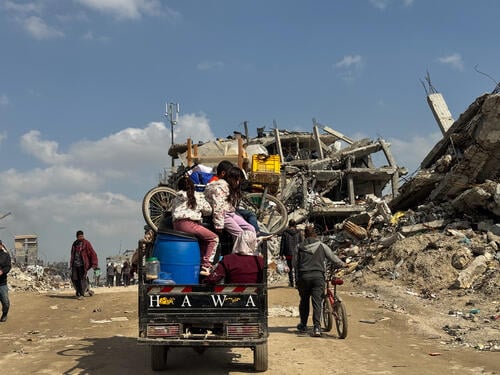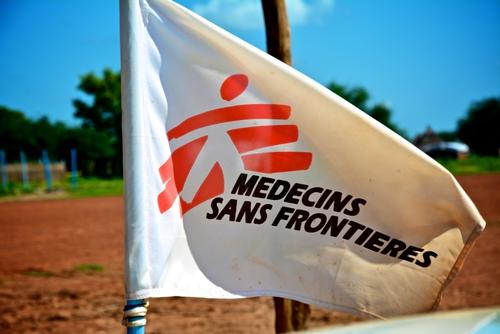“Besides all the coughing, I had a lot of pain on the right side of my ribs and I could not sleep in the night,” Farhan, a patient at the new tuberculosis (TB) centre in Wardher explained. “I was very scared and worrying for the future all the time. All the people in the villages were looking at me. They asked, ‘Why are you coughing so much? You must be a serious case, soon you will probably not be with us anymore’. I was very scared and worried about the future all the time”.
Farhan was diagnosed with TB at the health centre in Wardher, a town situated in the largest zone of the Somali Region, Ethiopia. Here, the desert-like landscape and an ongoing conflict make living particularly difficult. The health centre, run by the Bureau of Health (BoH) and supported by medical aid organization Médecins Sans Frontières (MSF), has just opened a new TB facility. The specially designed ward offers 70 beds, along with a much-improved environment to help patients recover.
TB is a contagious disease that spreads mainly through the air like a common cold, usually affecting the lungs. The disease kills 1.6 million people worldwide every year and another nine million people suffer from it. TB-HIV co-infection rates are high, especially in Africa, where TB is the biggest killer of people suffering from both diseases. Yet, with good diagnosis and proper treatment people’s lives can be saved.
“In the new TB building there is a lot of space and because it is cool patients can sleep well and feel better during the treatment”, continued Farhan, “Here they gave me medication, a bed to sleep on, a blanket to keep me warm, a mosquito net to protect me and food to eat. For this I am very grateful. Now I don’t have pain anymore, I am not coughing and I have an appetite again”.
Farhan will stay in the TB centre for around two months, receiving intensive treatment and care, and will then be able to return home to continue his medication for between four to six months. He already looks forward to resuming everyday life, earning a living by digging holes for water collection and construction. Farhan is one of the lucky ones.
“I don’t know what I would have done without this help. I can say that this TB care in Wardher was very important for me and is very important for the community”, he said.
To date, MSF outreach teams have extended health care to five health posts in nearby villages, along with referring TB patients from the new MSF/BoH health centre in nearby Galadi. There remain, however, many people in the wider Wardher area who do not have access to such care. Although the Somali Region has the least TB case detection rates in the country, the TB incidence rates is suspected to be high; yet another reason why increased assistance and unfettered access by medical providers is crucial if lives are to be saved.
MSF has a long experience of implementing TB projects in Somali Region (Jijiga, Gode and Afder zones). At the national level, MSF is also involved in the technical working group for multidrug-resistant tuberculosis (MDR-TB) led by the National TB Program which developed “The National Guideline and Strategy for MDR-TB”.
MSF has worked in Wardher, Somali region, Ethiopia, since 2007. The organisation supports the Ethiopian Government’s Bureau of Health facility in delivering primary health care, including inpatient and outpatient care, treatment of malnutrition, reproductive healthcare, treatment of tuberculosis and laboratory work. Elsewhere in the region MSF provides medical care (ranging from basic healthcare to nutritional care) in Galadi, Bokh, East and West Imey, Degehabur, and Dolo Ado (transit camp and surrounding area).
In Ethiopia, MSF also runs a kala azar treatment programme (including treatment for HIV/tuberculosis/malnutrition) in Abdurafi, northwest Amhara region; a primary health care project in Wantaho woreda of Gambella region; and supports the national outpatient therapeutic nutritional programme roll-out strategy in Anchar worreda in West Hararghe zone of Oromiya region. In addition, the organisation is ready to respond to emergencies as and when necessary.





